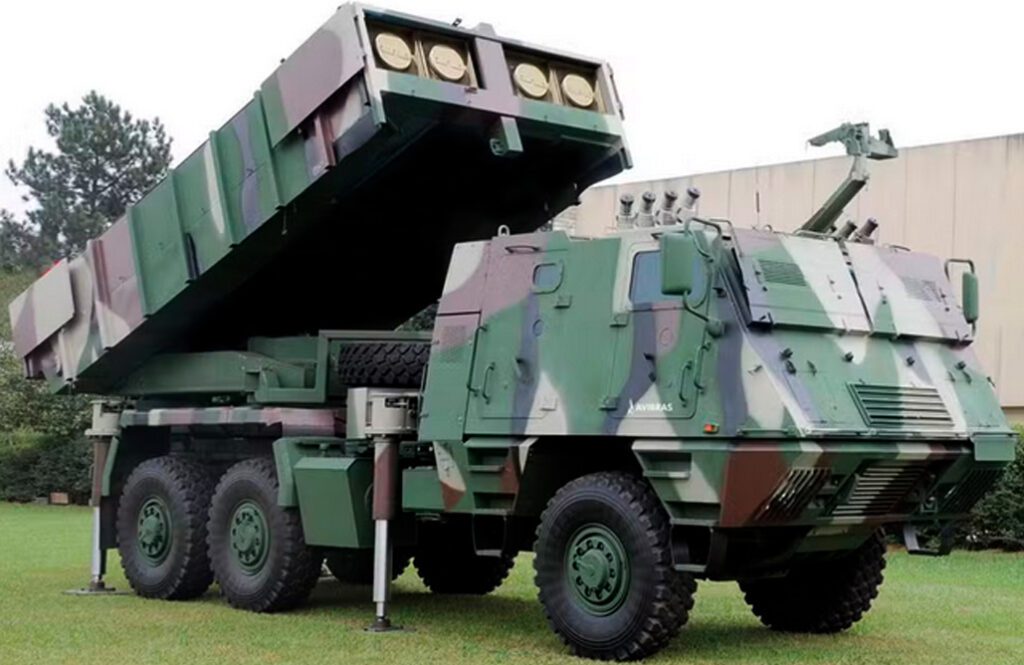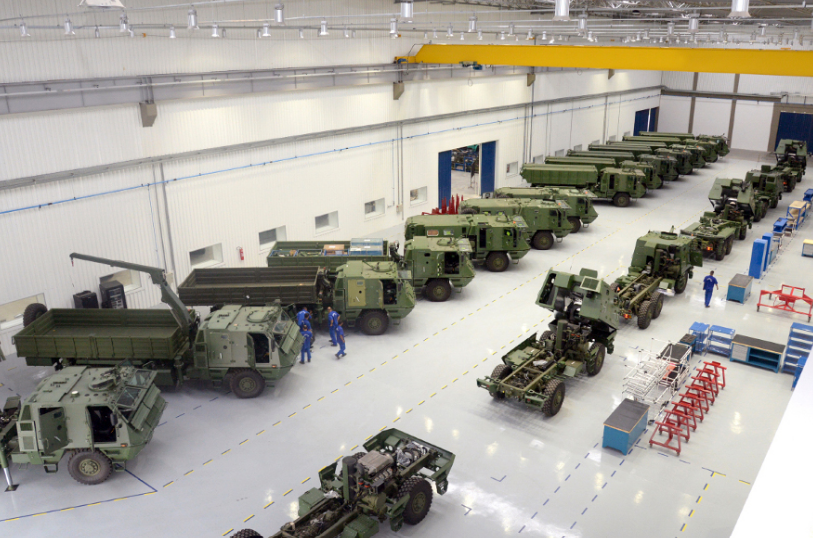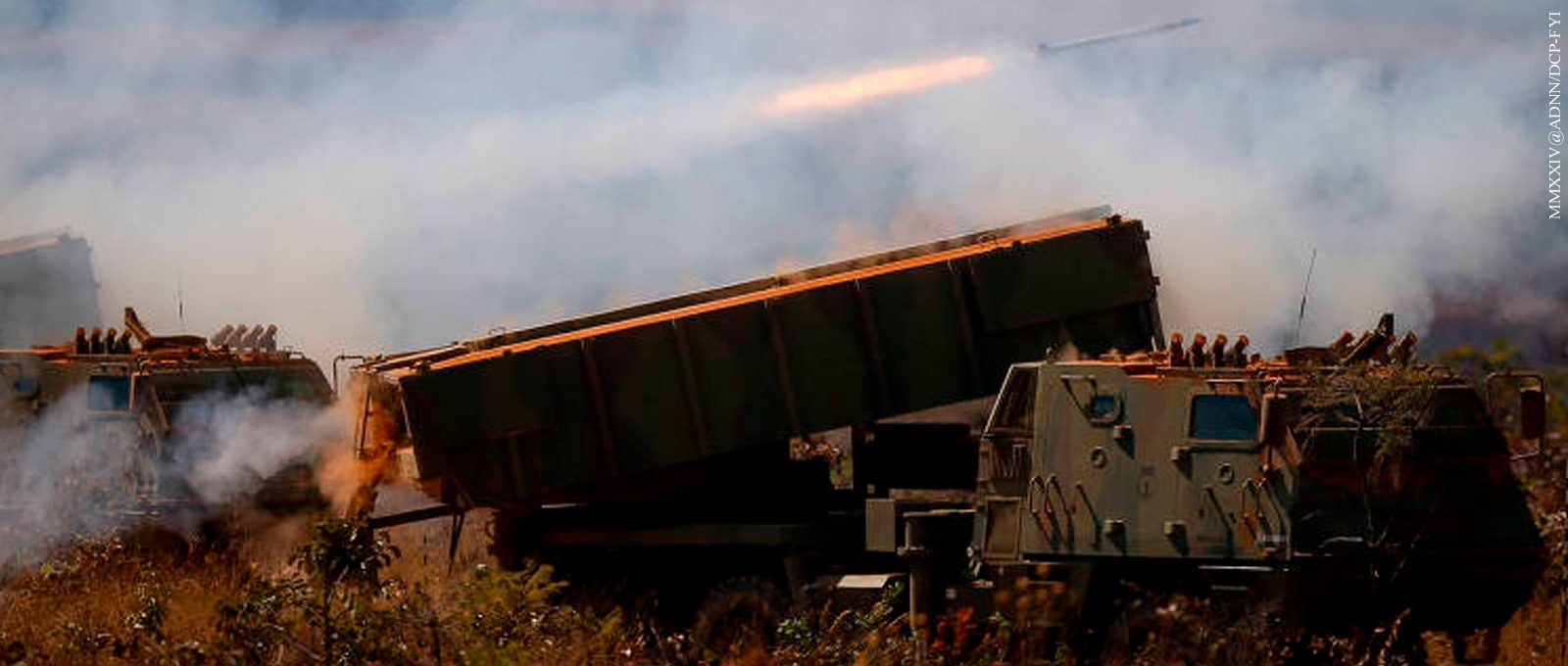Considered the main manufacturer of heavy defense systems in Brazil, Avibras Aeroespacial is negotiating its sale to the Australian group DefendTex as a way of avoiding bankruptcy. The negotiations, however, may come up against the Brazilian government’s position of not authorizing exports of military products to Ukraine in the war sparked by the Russian invasion.
The main focus of Australian investors in the short term is the production and sale of 122 mm caliber rockets used as ammunition for launchers employed by Ukraine in the war against the Russians, people involved in the negotiations told Folha.
The rockets are used in a self-propelled launcher called the BM-21 Grad, created in the 1960s by the former Soviet Union. Russia also uses the same weaponry to this day, which has a range of between 5 km and 45 km.
Ammunition for the rocket system is in short supply around the world, with large-scale use in the conflict between Kiev and Moscow. Despite its expertise, Avibras has been unable to meet demand because of its indebtedness.
There are reports that other Eastern European countries have expressed interest in acquiring the rockets, and the market could be expanded with the production of ammunition by Avibras.
Brazil’s position of neutrality in the Ukrainian War, however, could be an obstacle to closing the deal, according to members of the Brazilian government. This is because, even under Australian management, Avibras would need approval from Brazilian authorities to export its rockets manufactured in São José dos Campos (SP).

In previous cases, the government of Luiz Inácio Lula da Silva (PT) vetoed the export of equipment and ammunition to be used in the context of the war. In a first case, Brazil banned the sale of armored vehicles used in anti-aircraft artillery – the request had been made by Germany, for use in Ukraine.
The government also rejected proposals to sell tank ammunition and Guarani armored vehicles modified for use as ambulances in the conflict.
For members of the Lula government, the sale of Avibras to a foreign group is still uncertain, and there are a number of doubts about the negotiation. The Ministry of Defense is waiting for the purchase to go through so that, if asked, it can decide whether the group will continue to be accredited as a Strategic Defense Company, a classification that allows for some tax benefits.
The assessment of the president’s close circle is that there will be no change from the position of neutrality in the conflict to bail out Avibras. People with knowledge of the negotiations, however, believe it is possible to work with the government to export rockets to NATO (North Atlantic Treaty Organization) member countries. The negotiations with the Australian group have put the Army on alert. The Army maintains one of its strategic programs, Astros, with exclusive supply of missiles and rockets from Avibras. This year alone, the budget for Astros is R$114 million – the Army’s third largest investment under the PAC (Growth Acceleration Program).

During the negotiations with DefendTex, Avibras signaled that it would not stop selling its missiles and rockets to Brazil, nor would it abandon its factories. Despite this, generals heard by Folha say that there are still doubts about the future progress of the Astros.
In March 2022, Avibras filed for judicial reorganization, with debts estimated at R$570 million. In one fell swoop, it laid off 420 of its 1,500 employees – the remainder have been without salaries for ten months.
In 2023, Lula even ordered ministers José Múcio Monteiro (Defense) and Geraldo Alckmin (Industry and Vice-President) to study alternatives to assist Avibras and prevent its closure.
People involved in the negotiations said that Defense representatives talked to companies in the United Arab Emirates to make it possible for Avibras to recover through new contracts abroad. There was no success.
On another front, the government evaluated the possibility of the Brazilian state injecting funds into the company, whose creditors include the BNDES (National Bank for Economic and Social Development).
The understanding, however, was that the operation would be complex because of the lack of a legal framework to bail out companies for strategic purposes.
“[The Australian purchase] is a solution, but not the ideal one. The best thing would be for the government to have the money and use the resources to intervene and, consequently, take over the company. But it can’t afford to put up R$500 million, that’s not at stake,” said Congressman Carlos Zarattini (PT-SP).
In a statement, Avibras and DefendTex said that they were in “advanced negotiations to make a potential investment feasible aimed at the economic and financial recovery” of the Brazilian company.
*** Translated by DEFCONPress FYI Team ***
